What You Need To Know About The Powerful Benefits of Pomegranates – 13 Amazing Health Benefits and 7 Therapeutic Uses of Pomegranates
The Health Benefits of Pomegranates: A Comprehensive Guide
Overview

A Brief History of Pomegranates
The pomegranate (Punica granatum) is one of the oldest cultivated fruits, with a history that dates back thousands of years. Native to the region extending from modern-day Iran to northern India, the pomegranate has been grown throughout the Mediterranean, the Middle East, and South Asia for millennia. The fruit is mentioned in some of the oldest medical texts, as well as religious and historical documents, symbolizing fertility, abundance, and eternal life.
Ancient Origins and Cultivation
The cultivation of pomegranates began as early as 3000 BC in the Middle East. The fruit quickly spread across regions through trade routes, including the Silk Road, reaching Egypt, China, and the Mediterranean. Ancient Egyptians prized pomegranates for their medicinal properties and were often buried with pomegranates as a symbol of the afterlife. In ancient Greece, the pomegranate was associated with the myth of Persephone and was considered a symbol of the cycle of life and death.
Pomegranates in Religious and Cultural Texts
Pomegranates are mentioned in several religious texts. In the Bible, the pomegranate is described as one of the seven species that the land of Israel was blessed with (Deuteronomy 8:8). The fruit also appears in the Quran, where it is noted as one of the fruits that will be found in the gardens of paradise (Surah Al-An’am 6:99).
Spread to the New World
The Spanish introduced pomegranates to the Americas in the 16th century, bringing them to California and Mexico. Today, California is one of the largest producers of pomegranates in the United States.
Modern Significance
In modern times, pomegranates have gained renewed interest due to their health benefits. Scientific research has highlighted the fruit’s rich content of antioxidants, vitamins, and polyphenols, making it a popular superfood worldwide.
Nutritional Profile of Pomegranates
Pomegranates are a rich source of vitamins, minerals, and bioactive compounds. One medium-sized pomegranate (282 grams) contains approximately:
- Calories: 234
- Protein: 4.7 grams
- Fat: 3.3 grams
- Carbohydrates: 52 grams
- Fiber: 11.3 grams
- Vitamin C: 30% of the Recommended Daily Allowance (RDA)
- Vitamin K: 36% of the RDA
- Folate: 16% of the RDA
- Potassium: 12% of the RDA
The seeds, also known as arils, are particularly rich in dietary fiber, antioxidants, and polyphenols, which are compounds known for their anti-inflammatory and disease-preventing properties.
Seven Therapeutic Compounds in Pomegranates
Pomegranates (Punica granatum) are renowned for their rich nutritional profile and therapeutic properties, largely due to the bioactive compounds they contain. These compounds contribute to the fruit’s antioxidant, anti-inflammatory, and disease-preventing effects. Below are seven key therapeutic compounds found in pomegranates:
- Punicalagins
Punicalagins are powerful antioxidants unique to pomegranates, found in both the peel and juice. These water-soluble compounds are responsible for more than half of the antioxidant activity in pomegranate juice. Punicalagins have been shown to reduce oxidative stress and inflammation, playing a crucial role in cardiovascular health by lowering blood pressure and protecting against heart disease.
- Ellagic Acid
Ellagic acid is a polyphenol found in pomegranates that exhibits strong antioxidant properties. It is known for its ability to neutralize free radicals, thereby protecting cells from oxidative damage. Ellagic acid has been studied for its potential anti-cancer effects, particularly in inhibiting the growth of cancer cells and reducing the risk of hormone-dependent cancers such as breast and prostate cancer.
- Anthocyanins
Anthocyanins are a group of flavonoids responsible for the deep red color of pomegranate arils. These compounds have potent antioxidant and anti-inflammatory properties, contributing to the fruit’s ability to reduce the risk of chronic diseases, including heart disease and cancer. Anthocyanins also support brain health by improving cognitive function and protecting against neurodegenerative diseases.
- Tannins
Pomegranates are rich in tannins, particularly punicalins, and gallotannins, which contribute to their astringent taste. Tannins are known for their anti-inflammatory, antimicrobial, and astringent properties. They help protect against infections by inhibiting the growth of bacteria and viruses, and they also contribute to the fruit’s ability to reduce inflammation in the body.
- Flavonoids
Flavonoids are a diverse group of phytonutrients found in pomegranates that provide antioxidant and anti-inflammatory benefits. These compounds help protect cells from oxidative damage, reduce inflammation, and support cardiovascular health by improving blood vessel function. Flavonoids in pomegranates have also been studied for their potential to reduce the risk of cancer and support overall immune health.
- Quercetin
Quercetin is a flavonoid with strong antioxidant and anti-inflammatory properties. It is known to support heart health by reducing blood pressure and improving cholesterol levels. Quercetin also exhibits anti-cancer properties by inhibiting the growth of cancer cells and inducing apoptosis (programmed cell death) in various types of cancer.
- Urolithins
Urolithins are metabolites derived from ellagitannins in pomegranates after being processed by gut bacteria. Urolithins have gained attention for their potential to improve mitochondrial function and support healthy aging. They have also been studied for their anti-cancer properties, particularly in prostate cancer, where they inhibit the proliferation of cancer cells.
Pomegranates are rich in therapeutic compounds that contribute to their impressive health benefits. From antioxidants like punicalagins and ellagic acid to flavonoids and urolithins, these compounds work together to support heart health, reduce inflammation, and protect against chronic diseases. Including pomegranates in your diet can provide a natural source of these potent bioactive compounds, offering numerous health benefits.
Benefits of Pomegranates
Antioxidant Powerhouse
One of the most significant health benefits of pomegranates is their potent antioxidant content. The fruit is rich in punicalagins, anthocyanins, and ellagic acid, which contribute to its high antioxidant activity. Research has shown that the antioxidant capacity of pomegranate juice is three times greater than that of red wine and green tea.
Polyphenols and Punicalagins
Punicalagins are unique to pomegranates and have been extensively studied for their ability to reduce oxidative stress. These polyphenols are present in both the peel and juice of the fruit. Oxidative stress is a key factor in the development of chronic diseases such as heart disease, cancer, and neurodegenerative disorders. By neutralizing free radicals, the antioxidants in pomegranates can help protect cells from damage and reduce the risk of these conditions.
Cardiovascular Health
Pomegranates have been shown to promote heart health through various mechanisms. Regular consumption of pomegranate juice or extracts can lower blood pressure, reduce cholesterol levels, and improve overall heart function.
Blood Pressure Regulation
A study published in the journal Phytotherapy Research found that drinking 150 ml of pomegranate juice daily for two weeks significantly reduced systolic blood pressure. The high levels of polyphenols, particularly punicalagins, contribute to the relaxation of blood vessels, improving blood flow and reducing hypertension.
Cholesterol and Atherosclerosis
Pomegranates may also help reduce cholesterol levels and prevent the buildup of plaque in arteries, a condition known as atherosclerosis. In a study published in Clinical Nutrition, patients with high cholesterol who consumed pomegranate juice experienced a significant reduction in total cholesterol and LDL (low-density lipoprotein) cholesterol levels. Additionally, the antioxidant properties of pomegranates help prevent the oxidation of LDL cholesterol, a critical factor in the development of atherosclerosis.
Anti-Cancer Properties
The polyphenols and other bioactive compounds in pomegranates have been studied for their potential anti-cancer effects. Research suggests that pomegranates may help inhibit the growth of various types of cancer cells, including breast, prostate, and colon cancer.
Breast Cancer
In vitro studies have demonstrated that pomegranate extract can inhibit the proliferation of breast cancer cells. The ellagic acid in pomegranates has been shown to interfere with estrogen production, potentially reducing the risk of hormone-dependent breast cancer.
Prostate Cancer
Pomegranates may also play a role in preventing or slowing the progression of prostate cancer. A study published in Clinical Cancer Research found that men with prostate cancer who drank pomegranate juice experienced a significant increase in the time it took for their prostate-specific antigen (PSA) levels to double, indicating a slower progression of the disease.
Chronic inflammation is a contributing factor to many diseases, including heart disease, cancer, diabetes, and arthritis. Pomegranates possess strong anti-inflammatory properties, primarily due to their high concentration of antioxidants.
Arthritis and Joint Health
Pomegranate extract has been shown to reduce the symptoms of arthritis by inhibiting the enzymes that cause joint damage. In animal studies, pomegranate extract has been found to reduce inflammation and severity of arthritis. Human studies are still limited, but the results are promising and suggest that pomegranates may help manage arthritis symptoms.
Digestive Health
Pomegranates are a good source of dietary fiber, which is essential for maintaining healthy digestion. The fiber content helps promote regular bowel movements and prevent constipation. Additionally, the fruit’s anti-inflammatory properties can help soothe the digestive tract and may benefit individuals with inflammatory bowel diseases such as Crohn’s disease and ulcerative colitis.
Antimicrobial and Antiviral Properties
Pomegranates have demonstrated antimicrobial properties against various bacteria, fungi, and viruses. Studies have shown that pomegranate extract can inhibit the growth of harmful bacteria, including Escherichia coli and Staphylococcus aureus. Additionally, pomegranates may have antiviral effects, making them useful in the prevention and treatment of viral infections.
Skin Health
The antioxidants in pomegranates also offer benefits for skin health. They can help protect the skin from damage caused by ultraviolet (UV) rays, reduce signs of aging, and promote wound healing. Pomegranate extract is often used in skincare products for its ability to improve skin elasticity and reduce the appearance of wrinkles.
Seven Therapeutic Uses of Pomegranates
Pomegranates (Punica granatum) are not only a delicious fruit but also a powerful natural remedy with various therapeutic applications. Rich in bioactive compounds like antioxidants, flavonoids, and polyphenols, pomegranates have been traditionally used in folk medicine and are now backed by scientific research for their health benefits. Here are seven therapeutic uses of pomegranates:
- Cardiovascular Health
Pomegranates are highly beneficial for heart health due to their ability to lower blood pressure, reduce cholesterol levels, and prevent plaque buildup in arteries. The antioxidants, particularly punicalagins and anthocyanins, help reduce oxidative stress and inflammation, which are key factors in heart disease. Regular consumption of pomegranate juice has been shown to improve arterial health and decrease the risk of heart attacks and strokes.
- Cancer Prevention
Pomegranates have shown promise in preventing and slowing the progression of certain types of cancer, including breast, prostate, and colon cancer. Polyphenols, especially ellagic acid and punicalagins, have been found to inhibit cancer cell proliferation, induce apoptosis (programmed cell death), and prevent the spread of cancer cells. Pomegranate extracts are particularly effective in targeting hormone-dependent cancers by interfering with estrogen production.
- Anti-Inflammatory Effects
Pomegranates possess potent anti-inflammatory properties, making them effective in managing chronic inflammatory conditions such as arthritis, inflammatory bowel disease (IBD), and other autoimmune disorders. The fruit’s high concentration of antioxidants helps reduce the production of inflammatory markers in the body, alleviating symptoms and preventing the progression of these diseases.
- Digestive Health
Pomegranates are beneficial for digestive health due to their high fiber content and anti-inflammatory effects. The fruit helps regulate bowel movements, prevent constipation, and maintain a healthy gut microbiome. Pomegranate extract has also been shown to alleviate symptoms of inflammatory bowel diseases, such as Crohn’s disease and ulcerative colitis, by reducing inflammation in the gut lining.
- Skin Health
Pomegranates are widely used in skincare due to their ability to promote healthy skin. The antioxidants and vitamin C in pomegranates help protect the skin from damage caused by ultraviolet (UV) radiation, reduce the appearance of wrinkles and fine lines, and promote collagen production. Pomegranate oil and extracts are often used in topical products to improve skin elasticity, reduce inflammation, and enhance wound healing.
- Antimicrobial and Antiviral Activity
Pomegranates exhibit antimicrobial properties that are effective against a wide range of bacteria, fungi, and viruses. Pomegranate extracts have been shown to inhibit the growth of harmful microorganisms, including Escherichia coli and Staphylococcus aureus, as well as viruses like influenza and herpes simplex virus. These properties make pomegranates a valuable natural remedy for preventing and treating infections.
- Improved Memory and Cognitive Function
Research suggests that pomegranates can help improve memory and cognitive function, particularly in older adults. The antioxidants in pomegranates, such as flavonoids, have neuroprotective effects that help reduce the risk of neurodegenerative diseases like Alzheimer’s. Regular consumption of pomegranate juice or supplements has been associated with improved verbal memory and learning in clinical studies.
Pomegranates offer a wide range of therapeutic benefits, from promoting heart health and preventing cancer to improving skin health and cognitive function. The bioactive compounds in pomegranates, including antioxidants and polyphenols, make them a powerful natural remedy for various health conditions. Incorporating pomegranates into your diet can provide these therapeutic benefits and support overall well-being.
Potential Risks and Considerations
While pomegranates (Punica granatum) are generally considered safe and beneficial for most people, there are some risks and safety considerations to be aware of, especially for individuals with certain health conditions or those taking specific medications. Understanding these risks can help ensure that pomegranates are consumed safely.
- Allergic Reactions
Pomegranate allergy is rare but can occur, particularly in individuals with a known allergy to certain fruits or plants. Symptoms of a pomegranate allergy may include itching, swelling, hives, difficulty breathing, and anaphylaxis in severe cases. If you experience any allergic symptoms after consuming pomegranates, it is essential to seek medical attention immediately.
- Interactions with Medications
Pomegranates can interact with certain medications, particularly those metabolized by the liver’s cytochrome P450 enzyme system. Pomegranate juice has been shown to inhibit the activity of these enzymes, which can affect the metabolism and efficacy of medications such as statins, blood thinners (e.g., warfarin), and blood pressure medications. Individuals taking these medications should consult their healthcare provider before consuming large amounts of pomegranate juice.
- Gastrointestinal Issues
While pomegranates are beneficial for digestive health, excessive consumption can lead to gastrointestinal discomfort, including bloating, gas, and diarrhea. The high fiber content in pomegranates may cause digestive upset in some individuals, particularly those who are not accustomed to a high-fiber diet. Moderation is key to avoiding these issues.
- Blood Pressure Effects
Pomegranate juice is known for its ability to lower blood pressure, which is beneficial for individuals with hypertension. However, for those who already have low blood pressure (hypotension) or are taking medications to lower blood pressure, consuming large amounts of pomegranate juice may cause blood pressure to drop too low, leading to dizziness, fainting, or other complications. Monitoring blood pressure and consulting with a healthcare provider is recommended for those with existing conditions.
- Potential Toxicity from Root, Bark, and Peel
While pomegranate arils (the edible seeds) and juice are safe for consumption, parts of the plant such as the root, bark, and peel contain alkaloids and other compounds that can be toxic if consumed in large quantities. These parts of the pomegranate plant should be avoided, particularly in raw or unprocessed forms, as they may cause symptoms such as nausea, vomiting, and dizziness.
- Pregnancy and Breastfeeding
Pomegranates are generally safe for pregnant and breastfeeding women when consumed in moderation as part of a balanced diet. However, the safety of pomegranate extracts, particularly those derived from the peel, has not been well studied in pregnant and breastfeeding women. It is advisable to avoid concentrated pomegranate supplements during pregnancy and breastfeeding unless recommended by a healthcare provider.
- Risk of Dental Issues
Pomegranate juice is acidic and can potentially erode tooth enamel if consumed frequently in large quantities. The high sugar content in some commercial pomegranate juices can also contribute to dental decay. To minimize the risk of dental issues, it is recommended to drink pomegranate juice in moderation, use a straw to reduce contact with teeth and rinse the mouth with water afterward.
Pomegranates are a nutritious and health-promoting fruit with many benefits, but it is essential to consider the potential risks and safety concerns. Individuals with allergies, certain medical conditions, or those taking specific medications should exercise caution and consult with a healthcare provider before incorporating large amounts of pomegranates or pomegranate products into their diet. By understanding and managing these risks, pomegranates can be safely enjoyed as part of a balanced and healthy lifestyle.
How to Source and Use Organic and Non-GMO Pomegranates
Pomegranates are a versatile and nutritious fruit, offering a range of health benefits. For those seeking to maximize these benefits while avoiding potential exposure to pesticides and genetically modified organisms (GMOs), sourcing organic and non-GMO pomegranates is essential. Here’s how to find and use these high-quality pomegranates.
- Understanding Organic and Non-GMO Pomegranates
- Organic Pomegranates: These are grown without the use of synthetic pesticides, herbicides, fertilizers, or genetically modified seeds. Organic farming practices focus on sustainability, soil health, and biodiversity. Pomegranates labeled as “organic” must meet the standards set by organic certification bodies, such as the USDA in the United States.
- Non-GMO Pomegranates: Non-GMO pomegranates are not genetically modified. While pomegranates are not typically genetically engineered, choosing non-GMO-labeled products ensures that the fruit is free from genetic modification. This is particularly important for products like pomegranate juice, which may be mixed with other ingredients.
- Sourcing Organic and Non-GMO Pomegranates
- Farmers’ Markets: Farmers’ markets are excellent places to find organic and non-GMO pomegranates. Local farmers often use organic practices, even if they are not officially certified. Shopping at farmers’ markets also allows you to ask growers directly about their farming practices.
- Grocery Stores: Many grocery stores carry organic pomegranates, particularly during their peak season in the fall and winter. Look for organic certifications on the label, such as the USDA Organic seal, to ensure the fruit meets organic standards.
- Online Retailers: Organic and non-GMO pomegranates can also be purchased online from retailers specializing in organic produce. Websites like Thrive Market, Whole Foods, and other organic-focused stores offer a variety of organic pomegranates and related products.
- Community Supported Agriculture (CSA): Joining a CSA program allows you to receive a share of organic and non-GMO produce directly from a local farm. Some CSAs offer pomegranates in their seasonal fruit offerings.
- Using Organic and Non-GMO Pomegranates
- Fresh Consumption: Organic and non-GMO pomegranates can be enjoyed fresh by simply cutting the fruit open and extracting the juicy arils (seeds). They can be eaten on their own, added to salads, and yogurt, or used as a garnish for various dishes.
- Juicing: Pomegranate juice is a popular way to enjoy the fruit’s health benefits. Use a juicer or blender to extract the juice from organic and non-GMO pomegranates. Fresh juice can be consumed on its own, mixed into smoothies, or used in cocktails.
- Cooking and Baking: Pomegranates add a burst of flavor and color to a variety of dishes. They can be used in sauces, glazes, or marinades for meats, added to baked goods, or incorporated into desserts like pomegranate sorbet or panna cotta.
- Preserving: Organic pomegranates can be preserved by making homemade pomegranate molasses, jellies, or syrups. These can be used as condiments or ingredients in various recipes.
- Herbal and Medicinal Uses: Organic pomegranates can be used to make pomegranate extract or tea, which may offer therapeutic benefits such as reducing inflammation or improving digestion.
- Storage Tips for Organic and Non-GMO Pomegranates
- Whole Pomegranates: Store whole pomegranates in a cool, dry place, such as a pantry or countertop, where they can last for up to a month. For longer storage, keep them in the refrigerator, where they can stay fresh for up to two months.
- Pomegranate Arils: Once the arils are removed from the fruit, they can be stored in an airtight container in the refrigerator for up to a week. They can also be frozen for longer storage, lasting up to six months.
- Pomegranate Juice: Freshly squeezed pomegranate juice can be stored in the refrigerator for up to five days. For longer storage, freeze the juice in ice cube trays and transfer the cubes to a freezer bag.
- Environmental Impact of Choosing Organic and Non-GMO Pomegranates
Choosing organic and non-GMO pomegranates supports environmentally sustainable practices. Organic farming methods reduce soil degradation, water pollution, and greenhouse gas emissions. Non-GMO crops help preserve biodiversity by avoiding the monoculture practices associated with genetically modified organisms. Supporting organic and non-GMO farming also promotes better working conditions for farmers and reduces the reliance on chemical inputs.
Sourcing and using organic and non-GMO pomegranates ensures that you are consuming fruit that is free from synthetic chemicals and genetic modification while supporting sustainable and environmentally friendly farming practices. By choosing these high-quality pomegranates, you can enjoy their rich flavor and numerous health benefits in a way that aligns with your values.
After Thought
Pomegranates are a nutrient-dense fruit with a wide range of health benefits. From their potent antioxidant properties to their potential role in preventing heart disease and cancer, pomegranates are a valuable addition to any diet. As research continues to uncover the therapeutic potential of this ancient fruit, incorporating pomegranates into your daily routine may contribute to improved overall health and well-being.
Start incorporating Raw Marine Phytoplankton from Activation Products into your diet today to help start enjoying its detoxing health benefits and experience a revitalized Optimal Health.
For natural and healing remedies, products, and supplements to help you live your most optimal healthy life, visit our store here!
Remember: Own Your Health!
I am being HEAVILY censored on Facebook, Google, and even X (formerly Twitter). Please help me spread this life-saving information.
If you enjoyed the information presented in this article, Please Share It. Help us reach more people and keep this website going! Thank you in advance!
Note: The information provided in this article is for educational purposes only and should not be considered medical advice. Please consult with a healthcare professional or registered dietitian before making any significant changes to your diet or lifestyle.
References
- Aviram, M., Rosenblat, M., Gaitini, D., et al. (2004). Pomegranate juice consumption for 3 years by patients with carotid artery stenosis reduces common carotid intima-media thickness, blood pressure, and LDL oxidation. Clin Nutr, 23(3), 423-433. doi:10.1016/j.clnu.2003.10.002
- Lansky, E. P., & Newman, R. A. (2007). Punica granatum (pomegranate) and its potential for prevention and treatment of inflammation and cancer. J Ethnopharmacol, 109(2), 177-206. doi:10.1016/j.jep.2006.09.006
- Seeram, N. P., Adams, L. S., Henning, S. M., et al. (2005). In vitro antiproliferative, apoptotic and antioxidant activities of punicalagin, ellagic acid, and a total pomegranate tannin extract are enhanced in combination with other polyphenols as found in pomegranate juice. J Nutr Biochem, 16(6), 360-367. doi:10.1016/j.jnutbio.2005.01.006
- Davidson, M. H., Maki, K. C., Dicklin, M. R., et al. (2009). Effects of consumption of pomegranate juice on carotid intima-media thickness in men and women at moderate risk for coronary heart disease. Am J Cardiol, 104(7), 936-942. doi:10.1016/j.amjcard.2009.05.015
- Rosenblat, M., & Aviram, M. (2006). Antioxidative properties of pomegranate: in vitro studies. Clin Nutr, 25(1), 1-13. doi:10.1016/j.clnu.2005.10.008
- Adams, L. S., Seeram, N. P., Aggarwal, B. B., et al. (2006). Pomegranate juice, total pomegranate ellagitannins, and punicalagin suppress inflammatory cell signaling in colon cancer cells. J Nutr Biochem, 17(9), 611-615. doi:10.1016/j.jnutbio.2005.10.007
- Pantuck, A. J., Leppert, J. T., Zomorodian, N., et al. (2006). Phase II study of pomegranate juice for men with rising prostate-specific antigen following surgery or radiation for prostate cancer. Clin Cancer Res, 12(13), 4018-4026. doi:10.1158/1078-0432.CCR-05-2290
- Morton, J. F. (1987). Pomegranate. In Fruits of Warm Climates (pp. 352-355). Miami, FL: Creative Resource Systems.
- Holland, D., Hatib, K., & Bar-Ya’akov, I. (2009). Pomegranate: Botany, Horticulture, Breeding. In Horticultural Reviews (pp. 127-191). John Wiley & Sons.
- Zohary, D., & Hopf, M. (2000). Domestication of Plants in the Old World (3rd ed.). Oxford University Press.
- Al-Khushail, M., & Al-Quran, S. (2007). Pomegranate in Holy Qur’an. Journal of Applied Sciences Research, 3(8), 948-952.
- Aviram, M., & Rosenblat, M. (2012). Pomegranate Protection Against Cardiovascular Diseases. Evidence-Based Complementary and Alternative Medicine, 2012. doi:10.1155/2012/382763.
- Heber, D. (2011). Multitargeted therapy of cancer by ellagitannins. Cancer Letters, 305(1), 1-8. doi:10.1016/j.canlet.2011.02.005.
- Bialonska, D., Kasimsetty, S. G., Schrader, K. K., & Ferreira, D. (2009). The effect of pomegranate (Punica granatum L.) byproducts and ellagitannins on the growth of human gut bacteria. Journal of Agricultural and Food Chemistry, 57(18), 8344-8349. doi:10.1021/jf901722x.
- Mohan, M., Waghulde, H., Kasture, S., & Sharma, R. (2010). Protective effect of pomegranate peel extract on experimental-induced gastric ulcers in rats. Journal of Medicinal Food, 13(4), 896-901. doi:10.1089/jmf.2009.1255.
- Espín, J. C., Larrosa, M., García-Conesa, M. T., & Tomás-Barberán, F. A. (2013). Biological significance of urolithins, the gut microbial ellagic acid-derived metabolites: The evidence so far. Evidence-Based Complementary and Alternative Medicine, 2013. doi:10.1155/2013/270418.
- Lansky, E. P., & Newman, R. A. (2007). Punica granatum (pomegranate) and its potential for prevention and treatment of inflammation and cancer. Journal of Ethnopharmacology, 109(2), 177-206. doi:10.1016/j.jep.2006.09.006.
- Mertens-Talcott, S. U., Jilma-Stohlawetz, P., Rios, J., Hingorani, L., & Derendorf, H. (2006). Absorption, metabolism, and antioxidant effects of pomegranate (Punica granatum L.) polyphenols after ingestion of a standardized extract in healthy human volunteers. Journal of Agricultural and Food Chemistry, 54(23), 8956-8961. doi:10.1021/jf0616747.
- Howell, A. B., & D’Souza, D. H. (2013). The pomegranate: Effects on bacteria and viruses that influence human health. Evidence-Based Complementary and Alternative Medicine, 2013. doi:10.1155/2013/606212.
- Aslam, M. N., Lansky, E. P., & Varani, J. (2006). Pomegranate as a cosmeceutical source: Punica granatum exhibits tissue regeneration, anti-inflammatory, and anti-aging properties. Journal of Ethnopharmacology, 103(3), 311-318. doi:10.1016/j.jep.2005.08.027
- Braga, L. C., Shupp, J. W., Cummings, C., et al. (2005). Pomegranate extract inhibits Staphylococcus aureus growth and subsequent enterotoxin production. Journal of Ethnopharmacology, 96(1-2), 335-339. doi:10.1016/j.jep.2004.08.034.
- Bookheimer, S. Y., Renner, B. A., Ekstrom, A., et al. (2013). Pomegranate juice augments memory and fMRI activity in middle-aged and older adults with mild memory complaints. Evidence-Based Complementary and Alternative Medicine, 2013. doi:10.1155/2013/946298.
- Kelso, J. M. (2014). Pomegranate-induced anaphylaxis. Journal of Allergy and Clinical Immunology: In Practice, 2(6), 777-778. doi:10.1016/j.jaip.2014.06.012.
- Farkas, D., Oleson, L. E., Zhao, Y., et al. (2007). Pomegranate juice: A natural product with potential adverse interactions with warfarin. Drugs in R&D, 8(4), 229-234. doi:10.2165/00126839-200708040-00003.
- Tandon, S., Mitra, S. K., Das, A., et al. (2008). A prospective randomized clinical trial to evaluate the efficacy of pomegranate extract in patients with active ulcerative colitis. BMC Complementary and Alternative Medicine, 8, 37. doi:10.1186/1472-6882-8-37.
- Aviram, M., Dornfeld, L., Rosenblat, M., et al. (2000). Pomegranate juice consumption reduces oxidative stress, atherogenic modifications to LDL, and platelet aggregation: Studies in humans and in atherosclerotic apolipoprotein E-deficient mice. American Journal of Clinical Nutrition, 71(5), 1062-1076. doi:10.1093/ajcn/71.5.1062.
- Bhandari, P. R. (2012). Pomegranate (Punica granatum L.): A medicinal plant with diverse pharmacological activities. Journal of Nutritional Therapy, 1(1), 45-56.
- Sreekumar, S., Sithul, H., Muraleedharan, P., Azeez, J. M., & Sreeharshan, S. (2014). Pomegranate fruit as a rich source of biologically active compounds. BioMed Research International, 2014. doi:10.1155/2014/686921.
- Young, D. A., & Lyons, K. (2001). Pomegranate juice-induced enamel erosion: A case study. Journal of Clinical Dentistry, 12(3), 83-86.
- Organic Trade Association. (2020). What is organic? Retrieved from OTA Website
Non-GMO Project. (2021). What is GMO? Retrieved from Non-GMO Project. - USDA. (2021). National Organic Program. Retrieved from USDA Website
Non-GMO Project. (2021). Verified products and brands. Retrieved from Non-GMO Project. - Shulman, A. (2020). The Pomegranate: A New Look at the Fruit of Life. Journal of Culinary Science & Technology, 18(2), 97-112. doi:10.1080/15428052.2020.1712290
Landers, S. (2014). Pomegranates in Cooking: How to Prepare, Store, and Enjoy the Fruit of Life. Food and Nutrition, 8(2), 45-58. - LaRue, J. H., & Johnson, R. S. (1989). Pomegranate Production in California. University of California Agriculture and Natural Resources Publication. Retrieved from UCANR.
- Reganold, J. P., & Wachter, J. M. (2016). Organic agriculture in the twenty-first century. Nature Plants, 2(2), 1-8. doi:10.1038/nplants.2015.221.
Chassy, B. M. (2010). The Nature of GMOs: Environmental and Food Safety Considerations. Annual Review of Plant Biology, 61(1), 317-346. doi:10.1146/annurev-arplant-042809-112222.
Featured Image Credit:Image by KamranAydinov on Freepik; Image by KamranAydinov on Freepik; Please find below the text you requested: Image by KamranAydinov on Freepik depicts a bowl of pomegranates with their seeds on a board, including the leaves. Please find below the text you requested: Image by KamranAydinov on Freepik depicts a bowl of pomegranates with their seeds on a board, including the leaves.

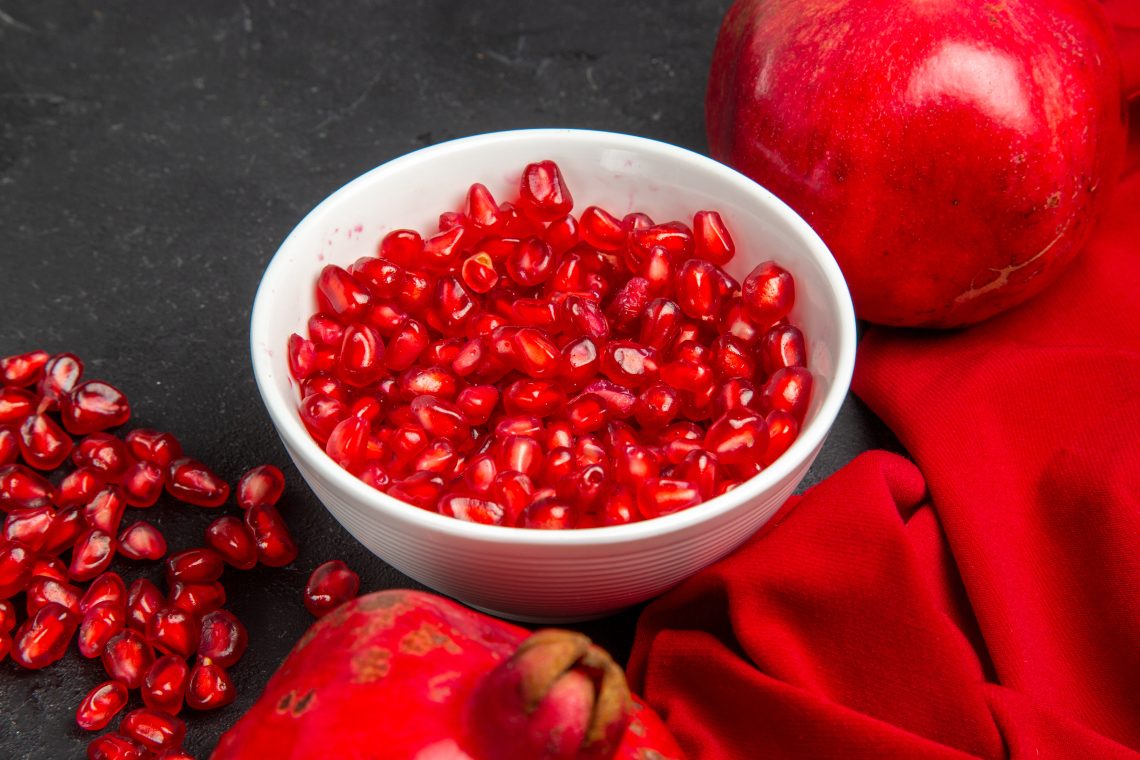
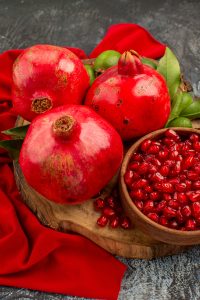


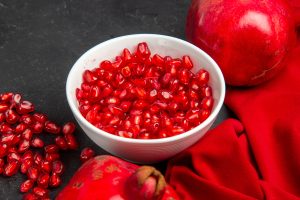


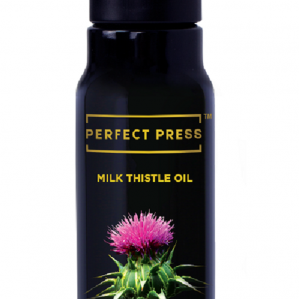
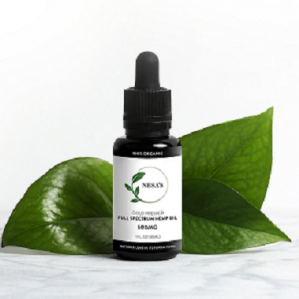
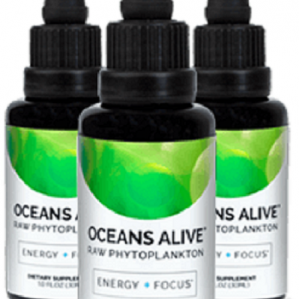
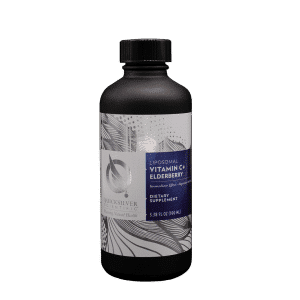












0 Comment